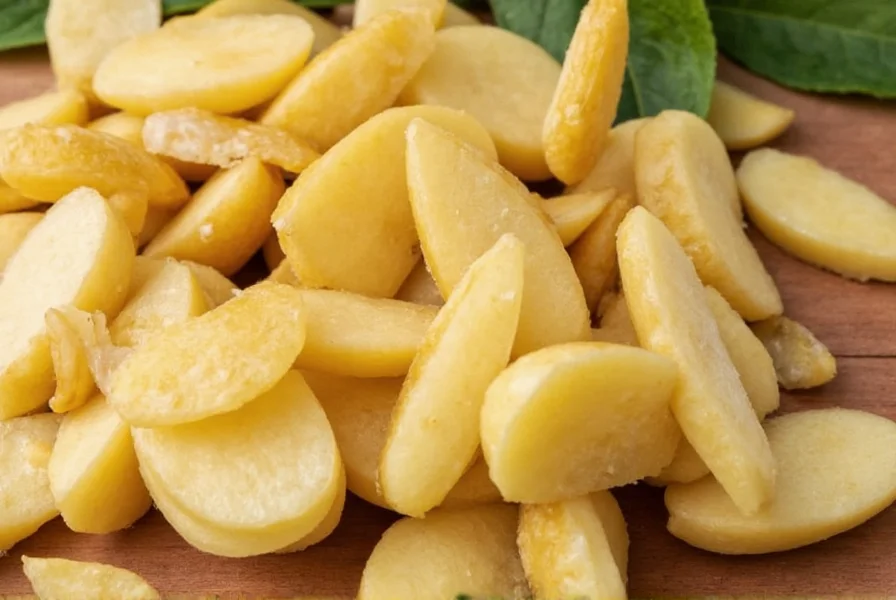Ginger isn't just a flavorful addition to your kitchen—it's a powerhouse of health benefits that deserves the "jolly good" reputation it's earned through centuries of use. This knobby rhizome, scientifically known as Zingiber officinale, contains bioactive compounds like gingerol that give it remarkable medicinal properties. Unlike many trendy superfoods, ginger's benefits are backed by substantial scientific research, making it a legitimate wellness staple rather than just a passing fad.
What Makes Ginger "Jolly Good"?
The phrase "jolly good" in British English signifies something exceptionally positive or beneficial. When applied to ginger, it perfectly captures this root's impressive range of health-promoting qualities. Ginger's therapeutic effects stem primarily from gingerols and shogaols, potent compounds with anti-inflammatory and antioxidant capabilities that work synergistically with your body's natural systems.
Unlike synthetic supplements, ginger offers these benefits through a natural food source that's been safely consumed across cultures for millennia. Its effectiveness for digestive issues, particularly nausea relief, is so well-documented that medical professionals often recommend it for morning sickness during pregnancy and chemotherapy-induced nausea.

Scientifically Supported Health Benefits of Ginger Root
Modern research continues to validate what traditional medicine systems have known for centuries about ginger's therapeutic potential. Let's examine the evidence-based benefits that make ginger truly "jolly good" for your health:
| Health Benefit | Scientific Evidence | Recommended Usage |
|---|---|---|
| Digestive Support | Multiple studies show ginger accelerates gastric emptying and reduces symptoms of functional dyspepsia | 500-2000mg daily, preferably before meals |
| Nausea Relief | Meta-analysis of 12 studies confirms effectiveness for pregnancy, chemotherapy, and motion sickness | 1-1.5g powdered ginger or fresh equivalent |
| Inflammation Reduction | Research demonstrates ginger's compounds inhibit inflammatory pathways similar to NSAIDs but without side effects | Regular consumption as part of diet or 2g daily supplement |
| Pain Management | Clinical trials show reduced muscle pain and osteoarthritis symptoms with regular ginger intake | 500mg-2g daily for chronic conditions |
Traditional Uses vs. Modern Applications
Ginger's journey from ancient Ayurvedic and Traditional Chinese Medicine to contemporary wellness practices reveals remarkable consistency in its applications. While traditional healers relied on empirical observation, modern science now explains why ginger works so effectively for specific conditions.
For digestive health, traditional preparations like ginger tea align perfectly with current understanding of how ginger stimulates digestive enzymes and relaxes intestinal muscles. The traditional use of ginger for colds and respiratory issues corresponds with modern findings about its anti-inflammatory effects on respiratory tissues.
What's particularly impressive is how ginger's traditional applications for women's health—particularly menstrual pain—have been validated by recent research. Multiple studies confirm that ginger supplementation significantly reduces menstrual pain intensity compared to placebo, with effects comparable to some pharmaceutical options but without the side effects.
Practical Ways to Incorporate Ginger Daily
Understanding ginger's benefits is only valuable if you can practically incorporate it into your routine. The "jolly good" aspect of ginger extends to its versatility in daily consumption:
- Fresh ginger shots: Blend 1-inch fresh ginger with lemon juice and a small amount of honey for a morning wellness boost
- Culinary applications: Add grated ginger to stir-fries, soups, and salad dressings for both flavor and health benefits
- Ginger tea preparation: Simmer sliced ginger in water for 10-15 minutes, then add lemon and honey to taste
- Smoothie enhancement: Add 1/2 inch of fresh ginger to fruit smoothies for digestive support
- Pickled ginger: Enjoy as a digestive aid before or after meals, particularly with rich foods

Understanding Ginger's Limitations and Considerations
While ginger deserves its "jolly good" reputation, it's important to understand its limitations and appropriate usage. Ginger isn't a miracle cure, and certain populations should exercise caution:
People taking blood-thinning medications should consult their healthcare provider before consuming large amounts of ginger, as it may enhance anticoagulant effects. Those with gallstones should be cautious as ginger stimulates bile production. While generally safe during pregnancy for nausea relief, extremely high doses aren't recommended without medical supervision.
The optimal daily intake for most adults seeking ginger's health benefits ranges from 1-3 grams of fresh ginger or 250-1000mg of standardized extract. Consuming ginger with food typically minimizes any potential gastrointestinal discomfort, which is rare but possible with excessive amounts.
Why Ginger Stands the Test of Time
Ginger's enduring popularity across diverse cultures speaks to its genuine value rather than passing trends. Unlike many "superfoods" that rise and fall in popularity, ginger maintains its status because its benefits are both noticeable and scientifically verifiable. The phrase "jolly good ginger" captures this essence perfectly—it's genuinely good, not just marketed as good.
What makes ginger particularly valuable in today's wellness landscape is its dual role as both food and medicine. You don't need special supplements or expensive extracts to benefit from ginger—simply incorporating it into your regular cooking provides meaningful health advantages. This accessibility and integration into daily life, rather than requiring special routines, contributes significantly to why ginger remains "jolly good" across generations.











 浙公网安备
33010002000092号
浙公网安备
33010002000092号 浙B2-20120091-4
浙B2-20120091-4